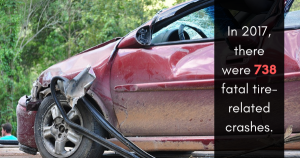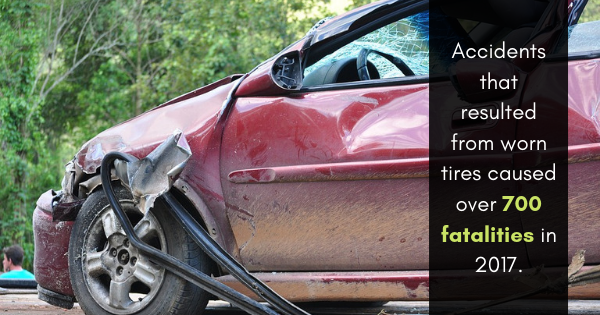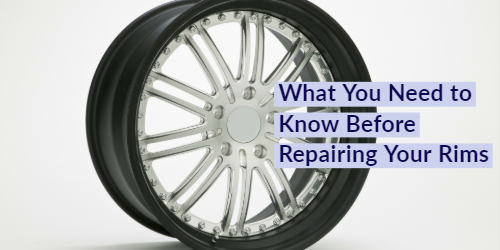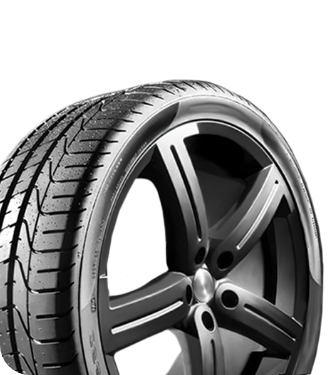

7 Signs It’s Time To Replace Your Wheels
Wheels |You don’t have to be a car expert to understand the critical role that your wheels play in your vehicle’s safety and performance. But many drivers don’t know how long wheels typically last or when to replace them. In our guide to wheel maintenance below, we’ll explain what you need to know about your vehicle’s wheels, including how long they typically last, signs it’s time to replace them, and how to inspect them yourself!
How Long Do Wheel Rims Last?
The lifespan of wheel rims depends on several factors, including the material they are made of. Aluminum and steel are the most common wheel materials. Aluminum rims are popular due to their lightweight nature and aesthetic appeal, and they last between five and ten years on average, depending on the driving conditions and maintenance.
Steel rims, on the other hand, are more durable and can last up to 15 years or more. However, they are heavier and may affect fuel efficiency. If you’ve had the same car and wheels for nearly a decade, you may need to consider wheel replacement.
Signs It’s Time to Swap Out Old Wheel Rims for New Ones
While there’s a wide variance in how long your wheels can last, there are always can’t-miss signs it’s time to replace them drivers must look out for, from visible damage to strange noises, and uncomfortable driving.
Cracks or Fissures in the Metal
One of the most obvious signs your car’s wheels have deteriorated beyond safe use is the presence of cracks or fissures in the metal. Cracks can develop due to various reasons, such as hitting a pothole or a curb.
Even small cracks can compromise the structural integrity of the wheel, leading to potential failure. If you notice any cracks during your inspection, it’s essential to replace the wheel immediately to avoid any safety hazards.
Large Chips or Dents
Large chips or dents in your wheel rims are another clear indication that it’s time for a replacement. These damages can occur from road debris, collisions, or even harsh weather conditions.
Chips and dents can weaken the wheel’s structure, causing it to deform over time. This can lead to poor handling and an uncomfortable driving experience. Even if it seems like a minuscule and irrelevant chip or dent, it can severely compromise the structural integrity of the wheel and your car’s safety.
Damaged Lug Nut Holes
Lug nut holes are crucial for securing the wheels of your vehicle. Over time, these holes can become damaged or enlarged due to wear and tear.
Damaged lug nut holes can cause the wheel to wobble, leading to vibrations and an unstable ride. When examining your vehicle’s wheels, check the lug nut holes to ensure they’re still secure, strong, and safe to drive on.

Vibration While Driving
If you notice a strange vibration in your vehicle while driving, it could be due to compromised wheel rims. Vibrations can occur due to unbalanced or misaligned wheels, but they can also indicate structural issues with the rims themselves.
If you experience persistent vibrations, inspect your wheels or have a professional examine them. Replacing damaged wheels will restore a smooth and comfortable ride.
Unusual Noise
Unusual noises, such as clicking or clunking sounds, can be a sign of wheel damage. These noises can result from loose or damaged components within the wheel assembly.
Ignoring these noises can lead to further damage and compromise your safety. If you hear any unusual sounds coming from your wheels, inspect them closely for signs of damaged or missing components and replace the wheels if necessary.
Uneven Tire Wear Patterns
The tire can also be an indicator of the health and viability of your vehicle’s wheels. If the tread of the tire is wearing down unevenly, it could be due to damaged or misaligned wheels.
When wheels are not in proper alignment, they can cause the tires to wear unevenly, reducing their lifespan and compromising traction. Therefore, you should inspect your tires regularly for signs of uneven wear.
Frequent Flats
Another way your car’s tires will tell you that they need new wheels is if you keep sustaining flats. While flats can result from various factors, such as punctures or valve stem issues, damaged wheels can also contribute to this problem.
Bent or cracked rims can cause air leaks, leading to frequent flats. Inspect your wheels for any signs of damage if you find yourself constantly dealing with flat tires.
How to Inspect Your Wheel Rims
To examine your wheel rims, start by visually examining the rims for any visible cracks, dents, or chips. Pay close attention to the condition of the lug nut holes, specifically the appearance or damage.
Additionally, check for any signs of rust or corrosion, as these can weaken the rims over time. If you notice any irregularities, have a professional examine your wheels to determine if replacement is necessary.
Do I Have to Replace All My Wheels?
When you need to replace a tire, you should ideally replace all four to maintain stability and consistency in rubber composition. However, this approach doesn’t apply to replacing rims. Instead, the how many rims you need to replace depends on the severity of the damage and the overall condition of the other rims.
If only one wheel has damage, it may be possible to replace just that one. However, if you’ve driven on one damaged wheel for long, the imbalance could have damaged the other wheels, requiring a replacement of the entire set. Consult with a professional to determine the best course of action for your specific situation.
Considerations for Selecting New Wheels
Here’s what to look for when deciding on which new wheels to purchase for your vehicle.

Size and Specifications
Selecting the right wheels for your vehicle starts with determining the appropriate size and specifications for your car’s requirements. Consult your vehicle’s manual or manufacturer guidelines to ensure a perfect fit.
Material Considerations
Next, evaluate the material of the wheels. Aluminum rims are lightweight, providing better fuel efficiency, while steel rims offer durability and can withstand harsher conditions. This choice can significantly impact both performance and longevity, so weigh the pros and cons of each option for your particular vehicle and driving conditions.
Aesthetic and Budget
Don’t forget to consider the aesthetic appeal and style of the wheels, as they can greatly enhance your vehicle’s overall look. Additionally, be mindful of your budget and aim for wheels that strike a balance between quality and affordability.
Find New Wheels at RNR Tire Express
Replacing your wheels is an investment in your vehicle’s safety and performance. At RNR Tire Express, we understand the importance of quality wheels and excellent customer service. Our wide selection of wheel rims ensures you’ll find the perfect fit for your car.
Whether you’re looking for new wheels or tires in Lubbock, RNR Tire Express is to help with our expertise and dedicated customer service. Browse our inventory online or schedule an appointment with one of our wheel and tire experts today!





